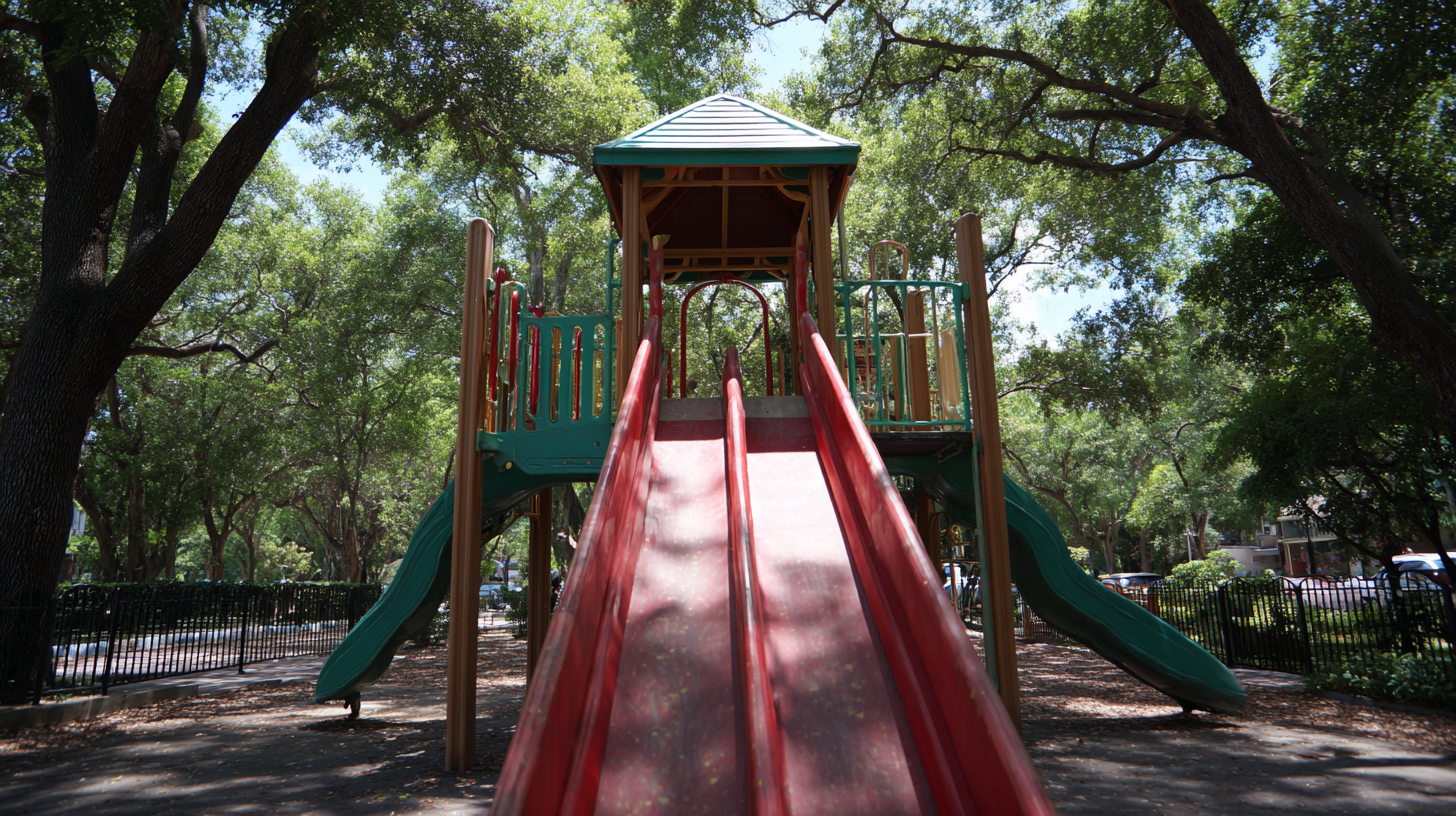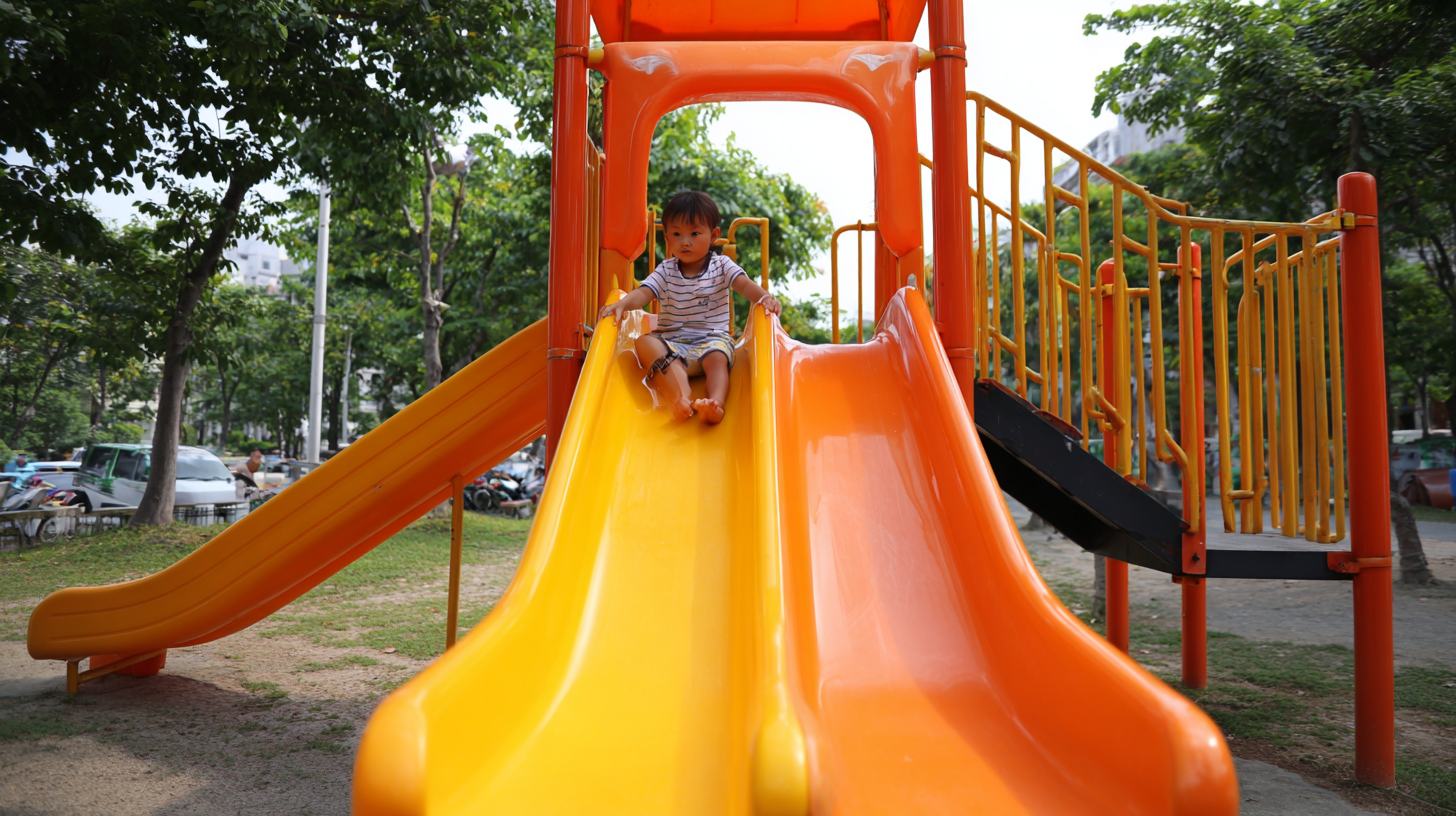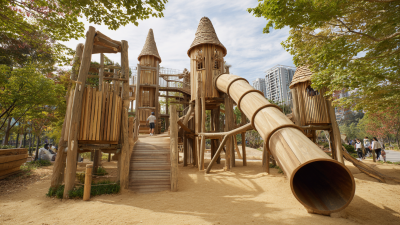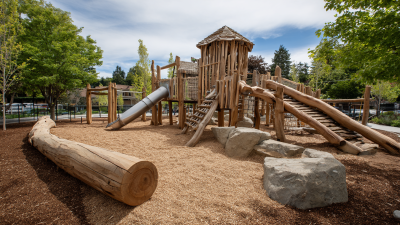 +86-13901441113
+86-13901441113




 Outdoor play is a crucial component of childhood development, and the inclusion of structures such as the Outdoor Play Slide is paramount for fostering both physical and social skills in children. According to a report by the American Academy of Pediatrics, outdoor play significantly contributes to children's health, improving their cardiovascular fitness and reducing the risk of obesity. In addition, the presence of play equipment, specifically slides, encourages children to engage in active play, which has been shown to enhance gross motor skills and coordination.
Outdoor play is a crucial component of childhood development, and the inclusion of structures such as the Outdoor Play Slide is paramount for fostering both physical and social skills in children. According to a report by the American Academy of Pediatrics, outdoor play significantly contributes to children's health, improving their cardiovascular fitness and reducing the risk of obesity. In addition, the presence of play equipment, specifically slides, encourages children to engage in active play, which has been shown to enhance gross motor skills and coordination.
Furthermore, playtime is not just about physical activity; it is also integral to social development. Research published in the Journal of Play indicates that social interactions during outdoor play promote teamwork, communication, and problem-solving abilities among peers. The Outdoor Play Slide serves as a catalyst for these interactions, allowing children to learn vital social skills while sharing experiences and overcoming challenges in a playful environment. Thus, prioritizing outdoor play spaces with features like slides can have a profound impact on shaping well-rounded, healthy children who are prepared for future social situations.
Outdoor play slides are a vital component of children’s physical health and overall development. Engaging in activities on slides encourages kids to utilize large muscle groups, enhancing their strength, coordination, and balance. Climbing up to the top of a slide requires the use of arm and leg muscles, promoting physical fitness and helping to develop crucial motor skills. These activities not only keep children active, but they also combat the increasing rates of childhood obesity by encouraging energetic play.
Furthermore, outdoor play slides facilitate social interactions among peers, which is equally important for physical health. When children gather around slides, they engage in cooperative play, waiting for their turn and cheering for one another. This kind of interaction not only builds friendships but also fosters essential social skills, such as empathy and patience. The excitement of sliding down and the laughter shared during playtime contribute to mood enhancement and stress relief, indirectly benefiting a child’s physical health. Therefore, incorporating slides into outdoor play areas is essential for encouraging a holistic approach to children's well-being.
| Dimension | Description | Benefits |
|---|---|---|
| Physical Health | Encourages physical activity and movement | Improved cardiovascular health and muscle strength |
| Social Skills | Promotes interaction among peers | Enhanced communication and teamwork abilities |
| Cognitive Development | Stimulates imagination and problem-solving | Improved critical thinking and creativity |
| Emotional Regulation | Provides opportunities for risk and challenge | Better management of emotions and stress |
| Balance and Coordination | Enhances motor skills through play | Improved balance, coordination and agility |
Outdoor play slides are more than just a source of fun; they play a crucial role in enhancing gross motor skills in children. When children climb, slide, and balance on play structures, they engage in activities that develop their coordination and strength. Climbing the ladder to reach the slide stimulates the use of multiple muscle groups, helping children build the necessary strength in their legs and core. As they slide down, they learn to control their movement and balance, which is essential for various physical activities.
Tips: Encourage your child to play on slides of varying heights to challenge their abilities. Always supervise their play to ensure safety while they explore different climbing techniques. Engage them in games that involve sliding races or obstacle courses to make the experience more enjoyable and promote skill development.
Moreover, sliding can foster social interactions among children. As they play together, they learn to share, take turns, and communicate, all of which are vital social skills. These experiences teach children about cooperation and empathy as they navigate the social dynamics of play. Encouraging group activities around slides can help reinforce these lessons while enhancing physical development.

Slides in playgrounds are not just fun; they play a vital role in fostering social interaction and teamwork among children. When kids climb up the slide and take turns, they learn valuable communication skills and the importance of patience while waiting for their turn. These interactions promote friendships and help children develop a sense of community. Engaging with peers in a playful environment nurtures empathy and understanding, which are essential for building strong social bonds.
Moreover, slides encourage teamwork as children often work together to navigate the climbing structures or unleash their creativity by imagining scenarios during their play. This collaboration teaches them how to negotiate roles, share ideas, and resolve conflicts amicably. Such skills are not only crucial in childhood but also lay the foundation for effective teamwork later in school and professional settings. By incorporating playtime that includes slides in their daily routine, children reap the benefits of social-emotional health, setting the stage for successful interpersonal relationships throughout their lives.

Outdoor play slides are more than just fun; they are critical to nurturing risk-taking and building confidence in children. According to a study published in the *Journal of Play*, engaging in risk-taking activities during playtime helps children develop essential life skills, including decision-making and resilience. When a child climbs to the top of a slide, they are not just assessing their physical abilities but also weighing the risks involved. This process of evaluating risk fosters a sense of autonomy and encourages young ones to push their boundaries while feeling secure in a controlled environment.
Moreover, slide play enhances social development by promoting cooperative play and communication skills. The *American Academy of Pediatrics* emphasizes that children learn important social cues through interactions on playground equipment. Sliding down a slide with friends encourages sharing, waiting for turns, and negotiating play. Research indicates that children who engage in these types of outdoor activities are more likely to develop higher levels of confidence and social competence. Embracing slide play allows them to explore their limits and learn from both successes and failures, ultimately shaping their approach to challenges in various aspects of life.
This chart illustrates how outdoor play slides contribute to various aspects of children's physical and social development. The data highlights the percentage increase in skills observed in children who engage in slide play regularly, showcasing benefits to risk-taking, confidence, and physical fitness.
Outdoor play slides are more than just fun; they serve as a catalyst for creativity and imaginative play in children. When kids climb to the top of a slide, they are not just engaging in physical activity but are also entering a world where their imagination can run wild. The simple act of sliding down can become an exhilarating journey—from being a daring adventurer crossing treacherous mountains to a superhero soaring through the sky. Such imaginative play helps to enhance their cognitive skills, as they create stories and scenarios that develop their problem-solving abilities and encourage critical thinking.
To foster this creativity, parents can encourage open-ended play by introducing themes or props related to their child's interests. For instance, providing costumes, such as capes or hats, can spark a child's imagination while sliding. Additionally, taking advantage of nature by integrating storytelling sessions at the park can inspire children to weave their real-life surroundings into their imaginative adventures.
Letting children choose their own play scenarios is also key. Instead of directing their playtime, allow them to explore their ideas freely on the slide. This autonomy builds confidence and a sense of ownership over their play, making each session an opportunity for unique creativity to flourish.





